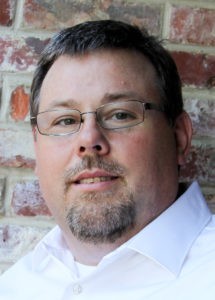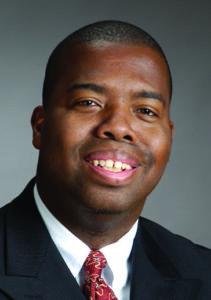The problem with Christian men’s conferences may not be the men or the speakers, it may be the very idea of a “men’s” conference.
Such events have become popular in modern American churches, particularly among evangelicals. And sometimes they create controversy, like the recent Stronger Men’s Conference where Mark Driscoll called out the “Jezebel spirit” in a sword-swallowing act.

David Phillips

Maina Mwaura
Of course, Promise Keepers put the evangelical men’s conference on the map. Some would say that increased male toxicity in the American church.
We both have held church leadership roles, and in our experience some men’s events were driven by a few men in the church who believe the best type of leadership is from men only. Some seek to glorify rugged masculinity, where men hunt and gather around the TV for the latest MMA match.
This glorification of a particular kind of masculinity has fed a toxic culture in many American churches.
This is not a biblical model. In the era of the early church, men and women often had to learn separately because of the dynamics of culture. As the Apostle Paul notes, women sometimes were expected to sit in silence and learn from their husbands, which was a cultural condition more than a biblical condition.
However, we no longer live in such times.
Scripture calls us to be tender. Men need to express a sensitive, caring side that frees up our spouses to excel, our children to be confident and, most importantly, we all should have tender hearts for the broken in our world.
Scripture calls for a mutual submission. Husbands, submit to your wives. Wives, submit to your husbands. Children, submit to your parents. Everyone, submit to Christ.
Men certainly have a leadership role, but it is a role built with the spouse, when there is one. We don’t make decisions unilaterally. We make them in conjunction with our spouses. And we make decisions based on the best interest of the other, not ourselves.
That’s not the message being conveyed at most Christian men’s conferences.
“If we are going to have men’s events in the church, we should be more inclusive in the planning.”
Now, we’re not talking about a weekend camping trip where a bunch of guys get together and head off to the lake to camp and fish. We are talking about large, multi-day men’s events with several speakers.
If we are going to have men’s events in the church, we should be more inclusive in the planning.
Have you ever been inside an empty silo? The echo is amazing. And when we live in silos, we tend to leave behind the voices we need to hear while hearing the echo of our own voices reverberating.
We wonder how the sword-swallowing conference would have been different had some women been around the planning table. Or if a woman had been one of the main speakers.
Yes, men can learn from women.
Even the Bible says men need helpers. That very word, used of the woman in Genesis 2:18, is a generic term that refers to someone who contributes to completing a task or accomplishing a goal. And it is also the same word used in the Old Testament to refer to God as a helper and protector of Israel.
Neither the woman nor the man rules over the other. Neither is savior to the other.
If that’s true, shouldn’t some women be included in planning and staging men’s events? And shouldn’t men be involved in planning and staging women’s events? Shouldn’t men speak at women’s conferences and women speak at men’s conferences?
Yes, there are certain topics that apply primarily to women. And women should address those. And there are topics that apply primarily to men. Men should address those. But most scriptural admonition is not based in gender.
We need to help each other become better.
Men, have your male-focused events. But don’t neglect the value a woman’s voice can have on those events. And women, have your female-focused events. But don’t neglect the value a man’s voice can have there either.
We need each other. We need both perspectives. Because we were designed to serve one another.
Maina Mwaura is a freelance writer and communications consultant who lives in the metro Atlanta area. A native of Orlando, Fla., he earned a bachelor of science degree in communications from Liberty University and a master of divinity degree from New Orleans Baptist Theological Seminary. David Phillips lives in Alabama and previously was a pastor in Delaware. He earned a bachelor of science degree from Athens State College in Athens, Ala, a master of divinity degree from New Orleans Baptist Theological Seminary, and a doctor of ministry degree from George Fox Seminary.


